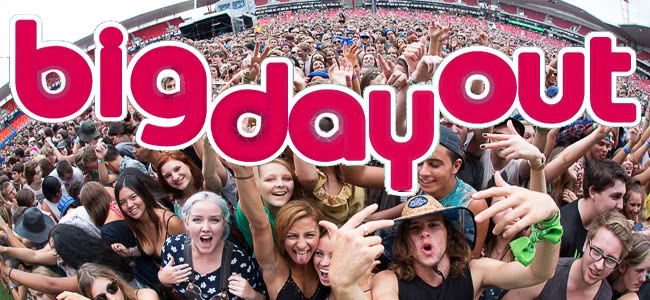With the recent news that Live Nation has acquired a “controlling stake” in Austin-based concert promotions company C3 Presents, owners of Lollapalooza and Australia’s own Big Day Out, the future for one of Australia’s most beloved festivals has never looked more uncertain.
While C3 Presents have previously assured punters that they intend to bring the festival back “in future years”, with the 2015 festival cancelled in the wake of poor 2014 ticket sales and several changes in ownership, there has been no word of a forthcoming return.
The festival’s fall, while well-publicised, has however remained a mystery to many outside of the Australian music industry. While the event was obviously hampered by poor ticket sales, many pundits cited a failure in strategy as contributing to its decline.
Speaking recently to the Austin Chronicle, C3 Presents founder Charles Attal detailed what he believed went wrong with the festival that many once cited as the crowning jewel in Australia’s bustling and ever-expanding music festival scene.
Attal explained that one of the primary perks attained from the Live Nation acquisition was the peace of mind that comes with having abundant resources in the international market. “It’s important knowing that I can go to the Live Nation office in Singapore, for example, to help with some production,” he said.
[include_post id=”429810″]
“We went into Australia, and you saw what happened with us losing a ton of money on Big Day Out last year. That’s a hit,” Attal continued. When prompted about what went wrong with the Big Day Out, Attal elaborated on the strategic missteps the company made with the event.
“We probably should’ve stuck with our program that we do over here,” Attal began. “Instead, we went to same old model that used to run. Remember when Lollapalooza was a touring concern? That model was already waning off here, and we should’ve known better. They need to make destination festivals. The touring festival is not working as well in Australia.”
“They need to make destination festivals. The touring festival is not working as well in Australia.”“We should have gone into Melbourne and Sydney, probably, and branded it that way. Maybe flip-flopped the weekends like Reading and Leeds in England. I don’t know exactly what we should’ve done, but it shouldn’t have been a touring festival. Those days, I think, are moving on.”
During the discussion, Attal also outlined where the global festival scene fits in with the greater music industry. “[Today’s music business is] about the live space. Eighty-five percent of a band’s income is live, so everything now revolves around how to promote a record around a tour,” Attal said.
[include_post id=”420820″]
“A lot of bands launch their record around Lollapalooza, or Coachella, or Bonnaroo, or ACL. And South by Southwest, of course. So we’re now the product managers. The live space is the product manager. We coordinate with labels and bands, who say, ‘We’re launching the week before, can you help us with promotion on site?'”
“Well, we have 120 media outlets on site at Lollapalooza, so yeah, we can help you navigate through some of that. That’s why I think festivals are so important for the artists.” As for how Live Nation came to acquire C3 Presents, and therefore the Big Day Out, Attal said it was a matter of necessity.
“Live Nation wanted to buy [us], because we’re growing in the festival market and they wanted to grow in that market as well,” he explained. “We needed each other. We’re pretty established in the festival market… There’s real risk out there.”
“It just got so cumbersome for us that we needed a worldwide partner to help us continue to grow without feeling like you’ve jumped off a cliff financially every time you make a decision that can affect you in the tens of millions of dollars.”
Attal did not comment further on the Big Day Out nor the festival’s future. However, it appears that if the event does make a comeback, we can reasonably expect to stay in Melbourne and Sydney, perhaps with Carling Weekend-style flip-flopping lineups.




































